
Winter is coming, and the high tops have already seen the first snow. It may be the most exciting and adventurous time of year on the hills, but winter comes with a hefty health warning. Throughout the season, walkers, climbers and skiers will be keeping a close eye on daily reports from the Scottish Avalanche Information Service. So what is it like to work as a forecaster, out every day in the most challenging conditions Scotland can cook up; and what does it take behind the scenes to run this essential resource? Dan Aspel meets SAIS head honcho Mark Diggins to find out.
Since 2009, Mark Diggins has been the coordinator of the Scottish Avalanche Information Service (SAIS). This means overseeing hazard forecasts for Lochaber, Glen Coe, Craigh Meagaidh, Torridon and the two halves of the Cairngorms, as well as being part of the team that inspects "the most unstable" slopes and snowpacks on a daily basis.
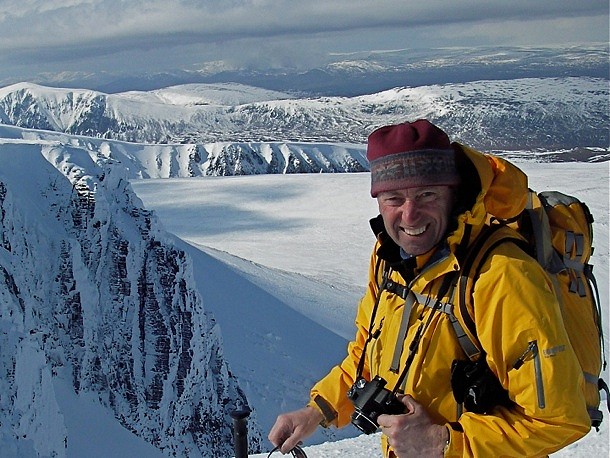
It's about being prepared for what nature throws at us. We need to be willing to be flexible"

In part thanks to this excellent service, Mark is keen to highlight that being avalanched in Scotland is actually "a very rare event", and that one of the guiding principles of the SAIS is to inform and encourage people to make sound judgements about their own winter adventures, and to be more likely enjoy the icy peaks as a consequence. In his words: "What we don't want is for people to go out in the mountains in the winter and be scared out of their wits… the mountains are a really important place where we can learn and develop as people".
It's astonishing what people will overlook in order to carry out their objective. But it's important to remember that being caught in an avalanche is a rare event. We don't want to put people off visiting the hills
If you'd like to learn more about how avalanche hazard is measured and judged, and how the formation of a snowpack can lead it to becoming unstable, then you'll find plenty of fascinating insight in this episode of Mountain Air. What you'll also find is a comprehensive picture of how a person finds themselves in the head of such an exciting and essential public service.
In our daily lives risk is managed all the time. There are only a couple of places left where we have the opportunity to evaluate hazard for ourselves: the sea and the mountains. That satisfaction shouldn't be taken away"
Mark's life has seen him inspired by early youth hosteling trips (where he'd load himself up with heavy tins of peas and beans and sleep on piles of bracken), to serving an apprenticeship with his local climbing club, to being mentored in "how not to be blown over" by climbing great John Cunningham.
Having dedicated himself to qualifying as an IFMGA Mountain Guide, he spent 16 years living and working in the Alps, eventually taking up other projects working alongside film and TV crews on remote and challenging projects across the globe. His adventures have taken him: across "poorly mapped" Greenland; "caving" down Low's Gully on Malaysia's Mt Kinabulu (and climbing up vines when reaching the jungle terrain that followed); to volcanic acid pools in Ethiopia's Danakil Depression; and to the echoing sounds of the Bedouin call to prayer in tall desert canyons.
Hear about all of this and more in Mountain Air 15
00:00 - Introduction
02:00 - Welcome. What is the Scottish Avalanche Information Service? Taking over as Co-ordinator in 2009, now "we have forecasters going out into the field, every single day, in six mountain areas"
06:40 - In praise of the SAIS winter conditions blogs
08:40 - "Getting avalanched is actually a very rare event", why experience and confidence (and "ignoring signs") might lead to risk
13:00 - "Go into those environments with an open mind, and being ready to change and be flexible"
15:10 - Reading avalanche charts, and understanding the complexity of avalanche hazard, heading to places that are "the most unstable" to find out the truth
18:10 - Technical chat: Explaining how the snow pack develops, and why it fails
23:50 - "Risk" vs "hazard"
26:00 - "What we don't want is for people to go out in the mountains in the winter and be scared out of their wits", the need to inform without frightening, and appreciating the value of spaces where hazards are real ("the mountains are a really important place where we can learn and develop as people")
32:07 - A personal history in the outdoors: life as a forecaster and IFMGA Mountain Guide; youth hostelling trips; carrying tins of food and sleeping on bracken above the Lake District's cold, hard ground; being supported and encouraged by older members of a local climbing club
40:28 - "John Cunningham was able to stand and not be blown over, and I couldn't quite work out how he did that! I've since learned, and it is a bit of a trick…", being inspired to become a Mountain Guide
44:00 - "I would recommend that if people are going into the outdoors as an instructor or mountain guide, that you have something else as well. It's really important". Working for the film and TV industry and guiding crews, guiding and expedition travel across the world, the attraction of judging hazards in the wild
46:58 - "Greenland was especially good because the maps aren't very good, the magnetic rocks aren't great for using compasses… it sounds terrible but it really went back to my roots of travelling in the mountain and making judgements in a wild place where if anything went wrong, you're on your own"
50:20 - "If there was a rainfall, all the rain would pour into this gorge and the water would rise 50ft in half an hour. So you had to be careful of where you camped overnight"
53:30 - "Being prepared for what nature throws at us"
54:25 - Greatest Mountain Memory: summitting the Matterhorn with a client for whom it was a lifetime ambition
56:15 - All the time, money, freedom… where would you go and what would you do? Travel to central Asia (Mongolia, Tajikistan) for the mountains, the people and the culture
- For daily avalanche forecasts through out the season from six areas of the Scottish Highlands see sais.gov.uk
- For more about Mark's guiding work see markdiggins.com and bmg.org.uk
Interview recorded 27/09/23
Mountain Air
Mountain Air podcast is made, recorded, hosted, edited, released and occasionally sworn at by Dan Aspel (he didn't, however, do the theme tune). This is the third series Dan has produced, and the second to be made in partnership with UKHillwalking. We'll be publishing regular episodes over the next few months.
Website: mountainairpodcast.uk
Instagram: @mountainairpodcast
Twitter: @MtnAirPod
- PODCAST: Mountain Air 20. Damian Hall, Ultra Runner 24 Feb
- PODCAST: Mountain Air 19. Becky Coles Leads an All-Women Team on the Alpine 4000ers 4 Nov, 2024
- INTERVIEW: Shane Ohly - Running the Dragon's Back in 102 Hours 16 Sep, 2024
- PODCAST: Mountain Air - 18. Claire Maxted, Wild Ginger Runner and BMC Summit Editor 29 Jul, 2024
- PODCAST: Mountain Air - 17. Maria Granberg on Pain Caves and Sufferfests 12 Jun, 2024
- PODCAST: Mountain Air - 16. Patrick Davies: The Diplomat Who Walked the Length of Britain 4 Mar, 2024
- PODCAST: Mountain Air - 14. Dougie Baird, Mountain Path Builder 22 Aug, 2023
- PODCAST: Mountain Air - 13. Jamie Aarons, Fastest Munroist in History 24 Jul, 2023
- PODCAST: Mountain Air - 12. Heavy Whalley on a Lifetime in Search and Rescue 15 May, 2023
- PODCAST: Mountain Air - 11. Steph McKenna, Award-Winning Mountain Campaigner 31 Mar, 2023

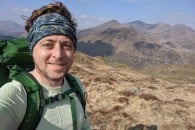

















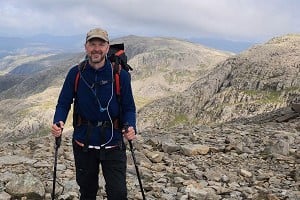
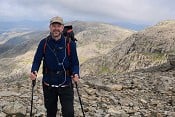
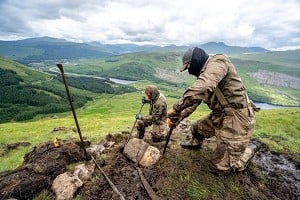
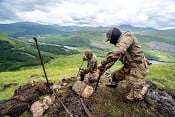
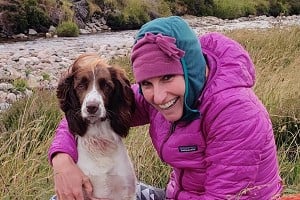
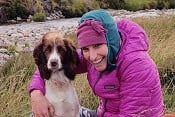
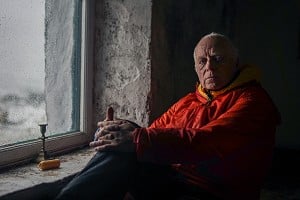
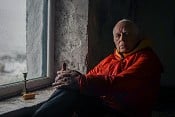
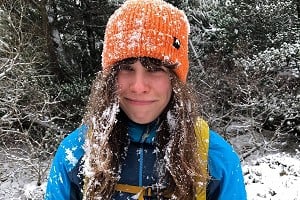
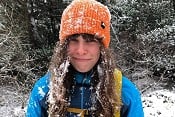
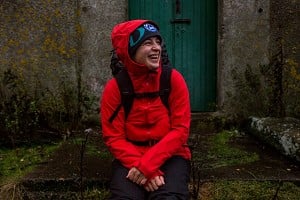
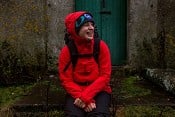
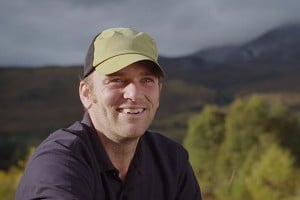
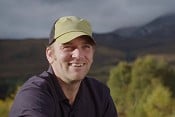
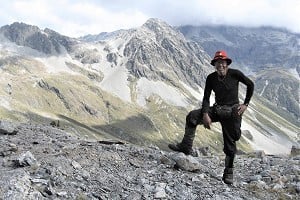
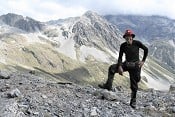
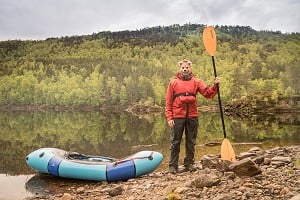
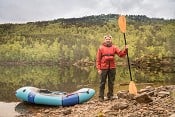
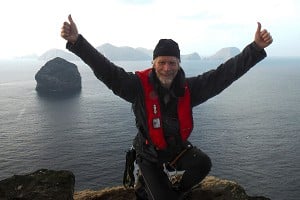
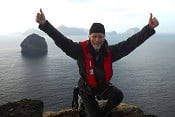
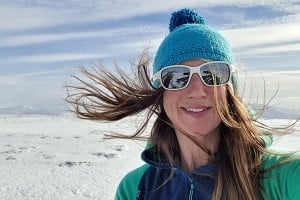
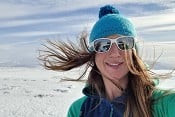
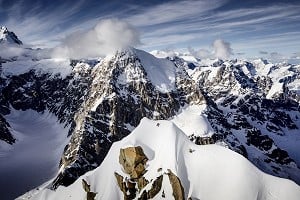
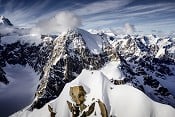
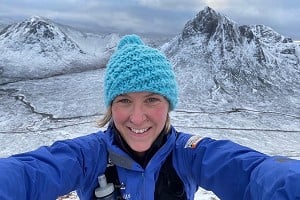
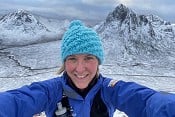
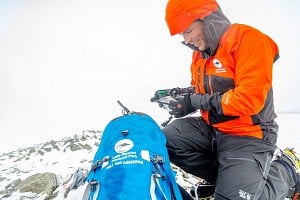
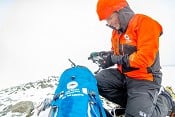
Comments
Also worth having this app on your phone. I don't think there was a link to this. I seem to recall 'Digger' teaching me avalanche awareness over 30 years ago at the Lodge on a winter ML.
https://www.sais.gov.uk/mobile-app/
Enjoyed that. Though I found there was confusion between Hazard & Risk, compared to other fields of risk assessment; seemed to use Hazard in place of Risk (even saying the Risk was always the same).